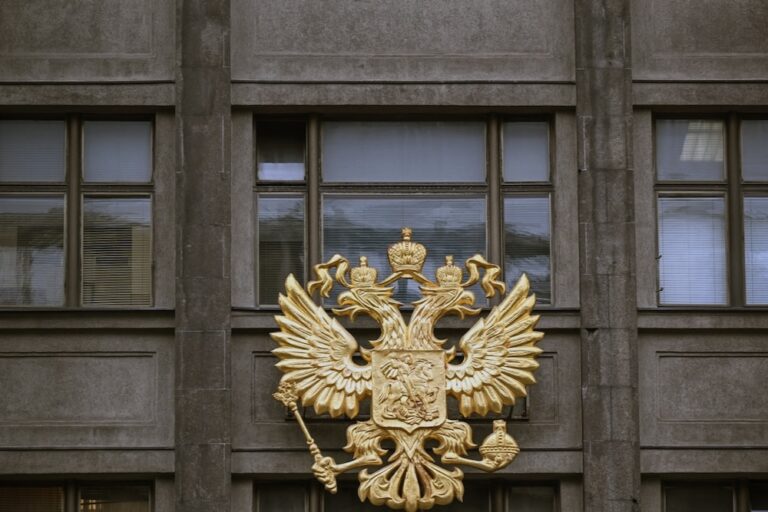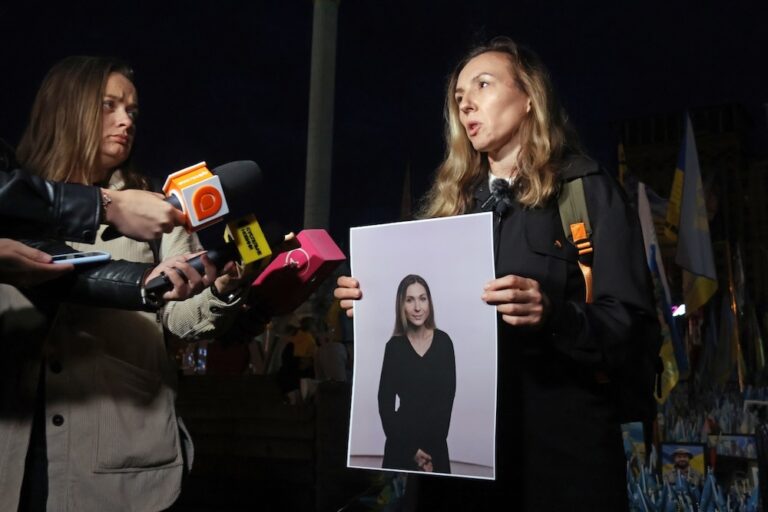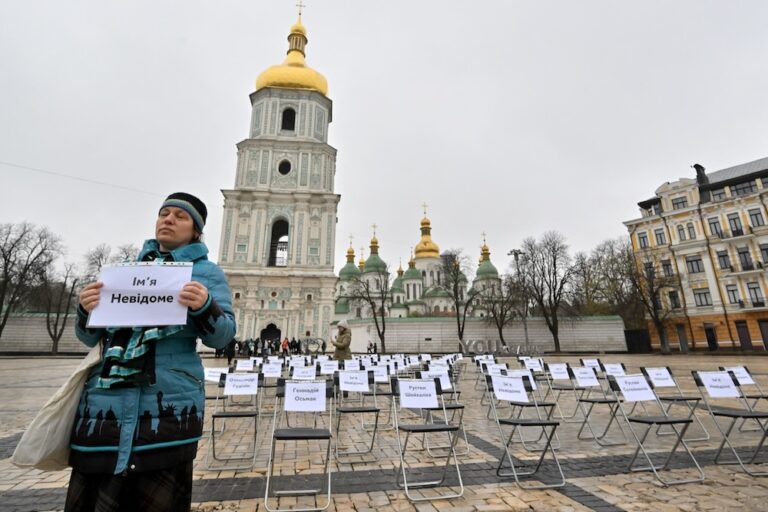Letter to President Jacques Chirac, Acting President of the European Union Reporters Without Borders and Human Rights Watch condemn murders and assaults of journalists in recent weeks Dear Sir, The stormy relations between the Russian government and the clique of bosses who run the media economy in Moscow have, in the past few months, been […]
Letter to President Jacques Chirac, Acting President of the European Union
Reporters Without Borders and Human Rights Watch condemn murders and assaults of journalists in recent weeks
Dear Sir,
The stormy relations between the Russian government and the clique of bosses who run the media economy in Moscow have, in the past few months, been highlighting the difficulties facing freedom and diversity of news in Russia.
Reporters Without Borders (RWB) and Human Rights Watch (HRW) wish to remind you that freedom of news includes the right for journalists to go about their work in complete safety, and that this right is not guaranteed in the Federation of Russia. The threats hanging over journalists covering fighting in Chechnya and the continuing deterioration of Russian reporters’ working conditions in several republics have reached an unprecedented high.
Reporters Without Borders (RWB) and Human Rights Watch (HRW) wish to draw your attention to the seriousness of the situation. On the eve of the European Union – Russian Federation summit and of your bilateral talks with President Vladimir Putin, we ask you to remind the Russian leader that such a state of affairs is incompatible with Russia’s European and democratic commitments.
Growing threat to journalists covering the Chechen conflict:
– On 16 October 2000 Antonio Russo, an Italian reporter covering the Chechen conflict from Georgia, was found dead by the side of a road north-east of Tbilisi. Ropes with which he had been tied up were found near the body. His apartment had been searched and looted. His satellite phone and portable computer had disappeared, along with video film of the fighting in Chechnya. Russo was working for Radio Radicale, the station of the Radical Party (run by former European Commissioner Emma Bonino) and the Transnational Radical Party. Russia has just started proceedings to have the latter party’s consultative status with the United Nations suspended. France has opposed the move. Russo had been in Georgia covering the war in Chechnya since February. The head of the Tbilisi public prosecutor’s criminal investigation department said on 19 October that he could not “exclude the possibility that the murder was committed by a foreign secret service”. The public prosecutor in Rome has also opened a murder inquiry.
– On 21 September Iskandar Khatloni, a journalist working for Radio Liberty in Moscow, was found dead with a smashed skull. The connection between the killing and the work of the journalist, who had been investigating human rights violations in Chechnya, has not yet been established.
– On 5 September Ruslan Mussayev, a cameraman with the US news agency Associated Press in Chechnya, was arrested and violently beaten by Russian soldiers. He was kept all night at the bottom of a well near the Khankala military base.
– On 12 May journalist Alexander Yefremov was killed in south-east Chechnya by a remote-controlled mine.
– Reporter Andrei Babitsky, who was arrested on 25 February 2000 for “belonging to an armed gang”, was held for several months by the Russian armed forces. Dozens of other journalists have been ill-treated or threatened since the start of the conflict.
We ask you to remind President Putin that Russia is obliged to respect the Geneva Conventions, which stipulate that journalists should be regarded as civilians in times of conflict, and protected as such, and that flagrant violations of those conventions is not compatible with Russia’s European commitments.
In the various republics of the Russian Federation, the independent media are the focus of continually increasing pressure from regional and local authorities. The number of attacks has further increased in recent weeks.
– On 14 October 2000 Magomet Tekeyev, editor of the independent daily Gorskiye Vedomosti, was violently beaten with a club in Cherkesk, the capital of Karachai-Cherkessia, a Russian republic north of Georgia. The journalist had on several occasions condemned corruption among the republic’s leaders.
– On 3 October Serguei Ivanov, the director of a private television channel in the Samara region, was shot dead. Police are working on the possibility that the motive was a settling of scores.
– On 30 September Sergey Amelin, an investigative journalist who had published several highly critical articles about the governor of the republic of Khakassia, north of Mongolia, and had been threatened on various occasions, was stabbed and seriously injured.
– On 26 July Sergei Novikov, director of the independent radio station Vesna in the Smolensk region, was shot dead. The motive for the killing is not known.
– On 16 July Igor Domnekov, a journalist with Novaya Gazeta, was fatally injured by a stranger. He had already received threats connected with his work as a journalist.
We have witnessed a considerable increase in the number of attacks and threats reported to our organisation in recent months. The situation is particularly worrying in the republics of Khakassia, Karachai-Cherkessia, Upper Altai (north-eastern Kazakhstan), Udmurtia (north of the Volga), and in the Russian regions of Magadan and Smolensk.
By deciding to award posthumously the “Russian Order of Bravery” to Kalmukian journalist Larisa Yudina (murdered in 1998, apparently on the orders of the highest authorities in the Republic of Kalmukia) on 11 September, President Putin was doubtless stating his concern about regional governments. But too many officials in the federal government and the Moscow municipality still refer openly to their scorn for independent news. A clear commitment to press freedom by the central government would set an example to the regions.
– We call on you to assess the gravity of this situation for the future of democracy in Russia, and to raise the issue in your talks with President Vladimir Putin. It is his responsibility to intervene personally to put a stop to the widespread and continuing deterioration in the working conditions of journalists in Russia. It is the responsibility of the European Union to remind him that a state of affairs in which violence against journalists is common currency is not acceptable with regard to Russia’s European and democratic commitments.
We thank you for your attention to our comments.
Yours faithfully,
Robert Ménard
General Secretary
Reporters Without Borders
Jean-Paul Marthoz
European Press Director
Human Rights Watch
For further information, contact Jean-Christophe Menet at RSF, 5, rue Geoffroy Marie, Paris 75009, France, tel: +33 1 44 83 84 84, fax: +33 1 45 23 11 51, e-mail: europe@rsf.fr, Internet: http://www.rsf.fr


